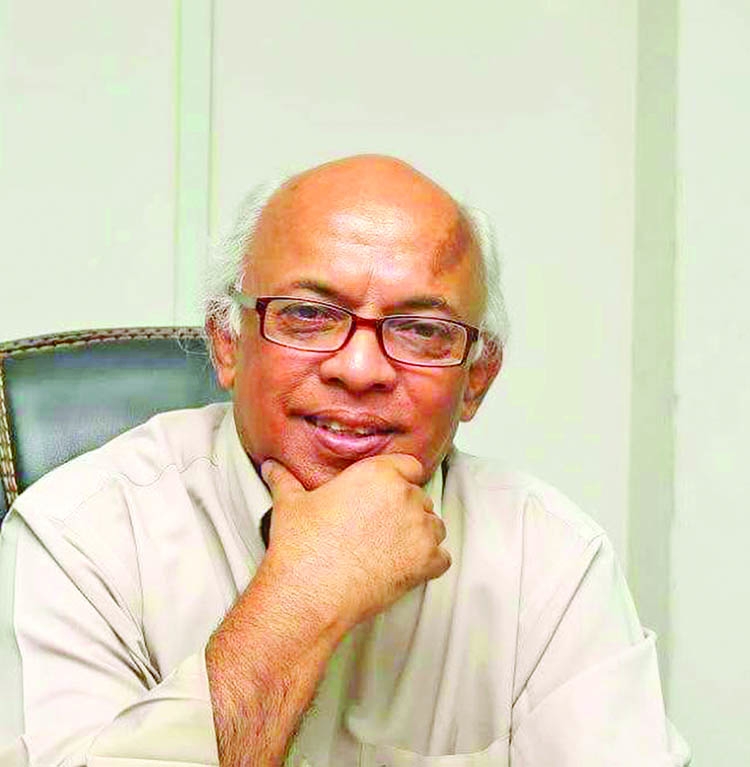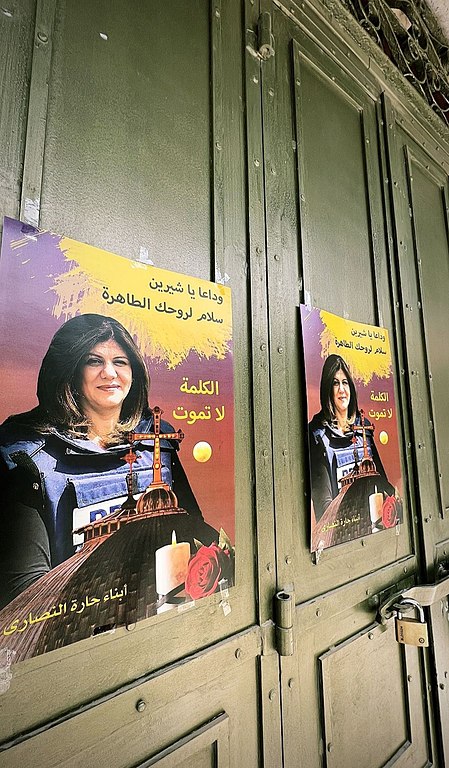The killing of Shireen Abu Akleh in the West Bank on May 11 of course highlighted the dangers faced by journalists – but also the importance, and impact, of speaking truth to power.
Media around the globe reported her killing and tens of thousands turned out to mourn her – the reporter on Palestine who became a household name across the Arabic speaking world for more than 20 years.

Bangladesh journalist Syed Badrul Ahsan has written about politics in Bangladesh and elsewhere for 40 years and is a biographer and author, member of the Commonwealth Journalists Association, and once press minister at the Bangladesh High Commission in London.
He has this look at her death, her life, and history.
Shireen Abu Akleh . . . and the spirit of Palestine
From the Dhaka Tribune
By Syed Badrul Ahsan, Bangladesh journalist and author
13 May 2022
When Shireen Abu Akleh lost her life at the hands of Israeli occupation forces in Jenin the other day, it was once again a reminder of the multiplicity of dangers journalists are confronted with in the line of duty. Over the years, journalists around the world have died at the hands of forces uncomfortable with a dissemination of truth, with the argument that truth must be spoken to power.
Shireen Abu Akleh, in the years since 1997 when she came into journalism, made it her mission to convey to the world the reality of what was happening to her people in Gaza, in Jerusalem, in the occupied West Bank. Through the consistency of her commentaries before the camera, moving boldly as she did between conflict zones that were increasingly getting to be dangerous, she had little thought of being careful in doing her duty. She knew, like so many of us do, that journalists, safe in that jacket marked ‘Press’ and in that helmet protecting the head, would not be a target of snipers or soldiers.
On Wednesday, it was a hail of bullets which nevertheless felled her. Note that the bullets were not directed at her vest nor at her helmet. The fury of the occupying power was unleashed on her face, leading to her instant death. The disturbing image of her still body lying under a tree in the seconds after death was forced on her, a colleague frightened at the deed that had been done, beside her, will long remain with us. And with that image we will recall the footage, a whole series of it highlighting her career, that has come our way per courtesy of the al-Jazeera network she so diligently and devotedly worked for.
The veneration with which she was given a loving, tearful farewell by her fellow Palestinians will remain ingrained in the consciousness of the world, in the hearts and souls of men and women who have always considered journalism a necessary mirror reflecting the manifest ills perpetrated around the globe by those who wield the power of the gun and the arbitrariness of draconian laws.
In an unjust world, we are not surprised that the Israeli authorities have been bending over backwards to give their own, less than credible spin on the manner of Akleh’s death. They have insinuated that the bullets which killed the fifty-one year-old journalist may have come from Palestinian snipers. They have come forth with video footage purporting to demonstrate the circumstances of Shireen Akleh’s death. It is footage which does not match the reality on the ground.
The lifeless body of the al-Jazeera journalist on the ground is the reality, an indictment of the sheer indifference to Palestinian lives of the men who refuse to end the occupation of Palestine. Israel’s refusal to take responsibility for the assassination of Shireen Abu Akleh is symptomatic of the agony Palestinians have suffered through fifty five years of occupation. Akleh was part of that nation, one relentlessly squeezed into being a ghetto by a militaristic state that has given brazenly short shrift to international law and moral principles.
In a very real meaning of the term, Shireen Abu Akleh never knew freedom in all her fifty-plus years of life. Born four years into the Israeli occupation, she grew into adulthood and into her profession a captive individual. And yet she waged war, day after day, through her bold coverage of a conflict which has defied solution — because in Tel Aviv and in the powerful capitals of the world, the cause of Palestine has consistently been pushed backstage.
Akleh refused to compromise with that sordid truth. She brought it into the homes of her fellow Palestinians evening after bitter evening, and so informed the world that Palestine was wounded but alive, that its undying spirit would give no peace to the occupying power.
Shireen Abu Akleh’s assassination should give pause to those who have played truant with the rules governing war, who have regularly undermined international law as also those who have conveniently looked away from the sufferings of nations. States may put the life out of people; occupying powers may shoot down a journalist. But history works in its own ways.
Akleh’s murder has reinforced the idea that history in Ramallah, in Jenin, in Jerusalem lives — that blockading Gaza and building illegal settlements on occupied Arab land and pumping bullets into young people desperate for freedom to breathe as free citizens of a sovereign Palestine is not the end of history.
Shireen Abu Akleh’s death injects new energy into the Palestinian cause. The world can ignore that, to its grave peril.
Shireen Abu Akleh killed
Syed Badrul Ahsan
Shireen in the Dhaka Tribune








